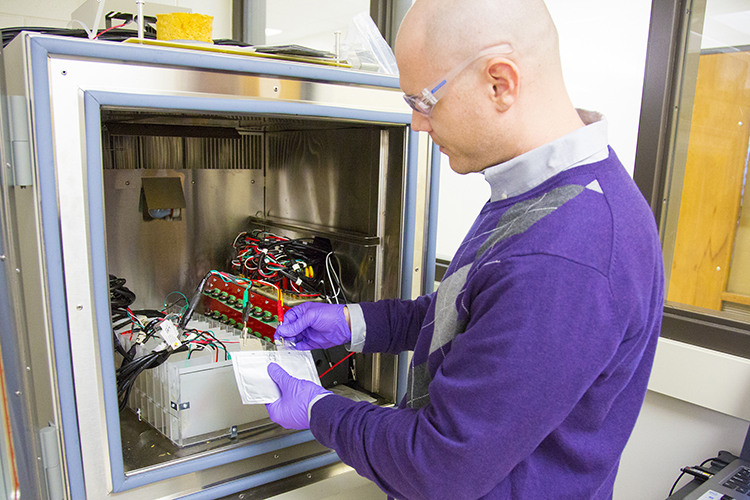All car batteries labor to start an engine during a deep freeze. That’s because chemical reactions needed to produce a current happen more readily when it’s warm.
But researchers in Deyang Qu’s lab have found a fix for the cold-car start – at least for electric vehicles, which use rechargeable lithium-ion batteries to spark ignition.
Qu, the Johnson Controls Endowed Professor in Energy Storage Research at UWM, and his researchers have come up with the right “recipe” for a part of the battery – the electrolyte. This liquid induces a chemical reaction to move lithium ions around, necessary for generating a current.
“It isn’t the conductivity or the melting or freezing point of the electrolyte that has the largest effect on battery performance,” said researcher Joshua Harris. “It really all depends on the electrolyte’s components.”
From the electrolyte’s reactions with the anode, a layer of oxidation builds up. Called the SEI layer, it governs the performance of the battery.
Read the full article here.



